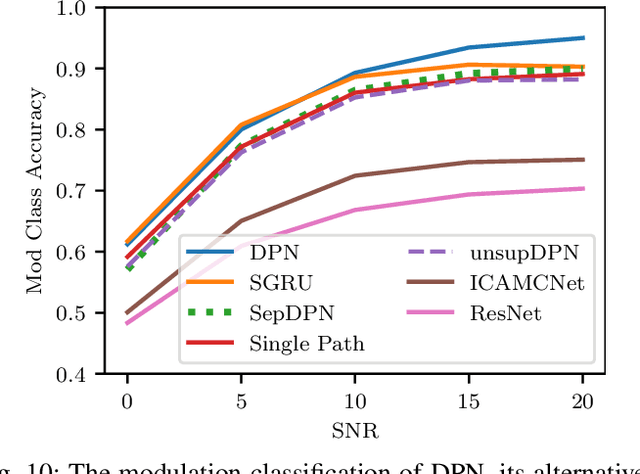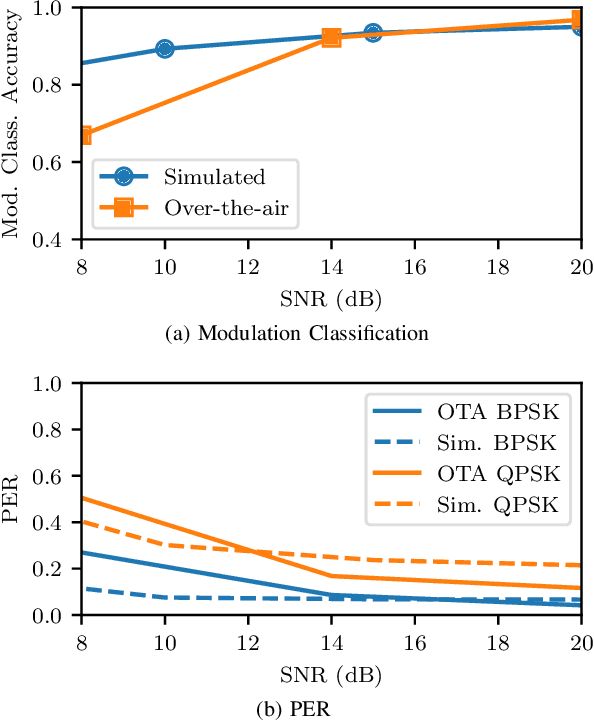Signal Processing Based Deep Learning for Blind Symbol Decoding and Modulation Classification
Paper and Code
Jun 19, 2021



Blindly decoding a signal requires estimating its unknown transmit parameters, compensating for the wireless channel impairments, and identifying the modulation type. While deep learning can solve complex problems, digital signal processing (DSP) is interpretable and can be more computationally efficient. To combine both, we propose the dual path network (DPN). It consists of a signal path of DSP operations that recover the signal, and a feature path of neural networks that estimate the unknown transmit parameters. By interconnecting the paths over several recovery stages, later stages benefit from the recovered signals and reuse all the previously extracted features. The proposed design is demonstrated to provide 5% improvement in modulation classification compared to alternative designs lacking either feature sharing or access to recovered signals. The estimation results of DPN along with its blind decoding performance are shown to outperform a blind signal processing algorithm for BPSK and QPSK on a simulated dataset. An over-the-air software-defined-radio capture was used to verify DPN results at high SNRs. DPN design can process variable length inputs and is shown to outperform relying on fixed length inputs with prediction averaging on longer signals by up to 15% in modulation classification.
 Add to Chrome
Add to Chrome Add to Firefox
Add to Firefox Add to Edge
Add to Edge